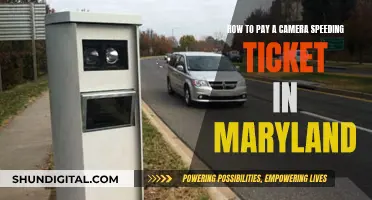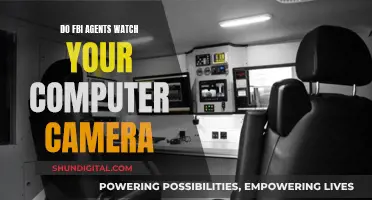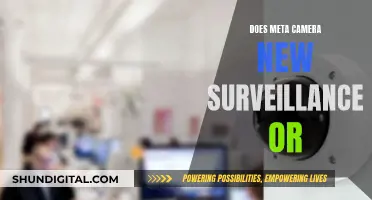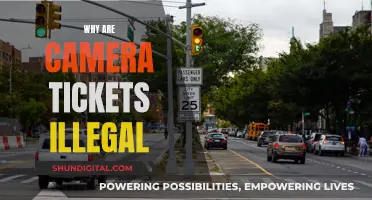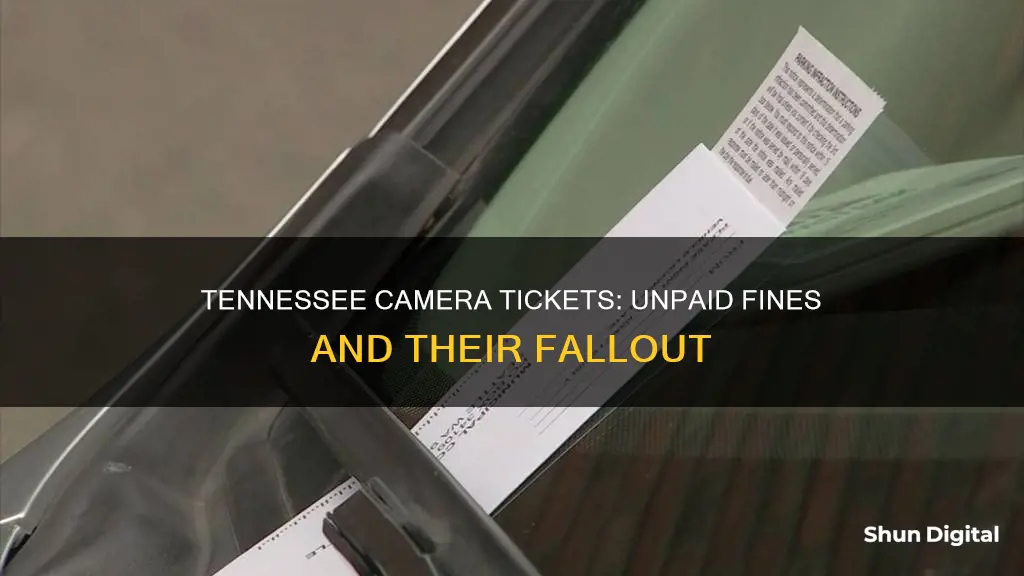
There are no legal consequences for not paying traffic camera tickets in Tennessee. Tennessee state law requires all traffic camera citations to include the following statement: Non-payment of this violation cannot have a negative impact on your driver's license, car insurance rates, or credit report. This means that unpaid tickets will not affect your credit score, driver's license, or automobile insurance rates. However, you may continue to receive letters and calls from collection agencies, and the city can take you to court to collect the fine.
| Characteristics | Values |
|---|---|
| Non-payment consequences | Cannot adversely affect credit score, driver's license or automobile insurance rates |
| Ticket requirements | Must be sent within 20 business days of violation |
| Ticket requirements | Must allow 30 days for payment |
| Ticket requirements | Must state the amount of the fine |
| Ticket requirements | Must state any additional fees or court costs |
| Ticket requirements | Must be sent to the registered owner of the vehicle |
| Ticket requirements | Must have a Tennessee return address |
| Ticket requirements | Must include a disclaimer in bold font stating that non-payment cannot adversely affect the recipient |
| Exempt vehicles | Emergency vehicles with active lights |
| Exempt vehicles | Vehicles moving through the intersection to clear the way for an emergency vehicle |
| Exempt vehicles | Vehicles under police escort |
| Exempt vehicles | Vehicles in a funeral procession |
What You'll Learn

No legal consequences
There are no legal consequences for not paying traffic camera tickets in Tennessee. According to Tennessee state law, non-payment of traffic camera tickets cannot adversely affect your credit score or report, driver's license, and/or automobile insurance rates. This is because, in Tennessee, an officer must be present to write a ticket.
The tickets will often state that payment is required by law, but this is misleading and has been the subject of much controversy. The tickets are issued by Redflex Traffic Systems, an Australian-based company, and it is up to them or the relevant city to report unpaid fines to a collections agency. However, the chances of this happening are slim, and there is little incentive to pay the fine.
Many people have chosen to ignore their camera tickets, and some have received several letters about the same ticket, but nothing has come of it. One person on Reddit commented that they had received a letter from a lawyer about their ticket, which they also ignored, and still, nothing happened. Another said they had received collection calls, but they were robocalls, and they were able to ignore them.
Former State Representative Andy Holt has repeatedly urged people across the state not to pay the tickets. He introduced a bill to make it harder for cities to hand out citations from red light cameras, but it was struck down before it left the committee. He also sponsored a bill that became state law, requiring traffic camera vendors to include the statement that non-payment cannot adversely affect your credit score, driver's license, or automobile insurance rates.
Undoing Actions: Camera Raw's Secret Superpower
You may want to see also

Tickets may be sent to collections
While there are no legal consequences to not paying a traffic camera ticket in Tennessee, there is a small chance that unpaid tickets could be reported to a collections agency. However, this is unlikely, as the company issuing the tickets (Redflex) says it's up to the city of Clarksville to do so, while city officials claim it's Redflex's responsibility.
Even if your unpaid ticket is sent to collections, it will not affect your credit score or report, driver's license, or automobile insurance rates. This is because, according to Tennessee state law, an officer must be present to write a ticket. Therefore, a ticket based solely on evidence obtained from an unmanned traffic camera is considered a nonmoving traffic violation and cannot have any negative consequences.
The worst-case scenario for not paying a traffic camera ticket in Tennessee is that you may receive collection calls or letters. However, many people who have chosen not to pay their tickets report that these eventually stop after a few months.
Think Tank Camera Bags: Where Are They Manufactured?
You may want to see also

Revenue for the city
Red light camera tickets are a significant source of revenue for cities in Tennessee. For example, in 2019, the city of Memphis received $3 million from citations issued by red light cameras. The city of Clarksville also generates substantial income from these tickets, which it splits with Redflex Traffic Systems, the company that operates the cameras.
The revenue generated from red light camera tickets is intended to enhance city services and improve public safety. In Clarksville, for instance, 75% of the revenue collected from these tickets goes to the police department, while the remaining 25% is allocated to the parks department. This funding is intended to bolster law enforcement efforts and enhance the city's recreational spaces.
While some people choose to pay red light camera tickets, there is ongoing debate about their legality and enforceability. Some individuals, including former State Representative Andy Holt, have actively discouraged people from paying these tickets, arguing that they are unconstitutional and infringe on citizens' rights. Holt has introduced several bills aimed at curbing the use of red light cameras and protecting drivers from unfair citations. However, these efforts have not always been successful, with some bills being struck down before leaving the committee.
Despite the conflicting views on the legality of red light camera tickets, the primary motivation behind their implementation is often revenue generation for the city. While some argue that these tickets improve public safety by deterring traffic violations, others contend that they are merely a means of financial gain for the city and the companies operating the cameras.
Kodak AZ652 Camera Battery: What's Inside?
You may want to see also

No effect on credit score or driver's license
If you don't pay a red light camera ticket in Tennessee, there will be no effect on your credit score or driver's license. This is because, under Tennessee state law, citations based on unmanned traffic enforcement cameras are considered non-moving traffic violations.
Tennessee state law requires that all traffic camera citations include the following disclaimer in a clearly legible format:
> "Non-payment of this ['notice' or 'citation'] cannot adversely affect your credit score or report, driver license, and/or automobile insurance rates."
This means that even if you don't pay the fine, your credit score and driver's license will not be affected. The disclaimer also highlights that non-payment will not result in any additional penalties or costs beyond the original fine.
While you may continue to receive letters and calls regarding the unpaid ticket, there are no legal consequences for non-payment. The threatening correspondence is simply a tactic to scare you into paying.
It's worth noting that some people have reported receiving letters from collection agencies regarding unpaid camera tickets. However, these letters are unlikely to have any real impact on your financial or driving record, and many people choose to ignore them without facing any repercussions.
Additionally, there are legal questions surrounding the validity of these tickets. Some sources suggest that under Tennessee state law, an officer must be present to issue a valid ticket, and you have the right to face your accuser, which is not possible with automated camera systems.
In conclusion, while you may feel pressured to pay a camera ticket in Tennessee, it's important to understand that non-payment will not affect your credit score or driver's license. The decision to pay remains a personal choice, but knowing your rights and the limitations of these tickets can help inform your decision.
Mastering Night Portrait Mode: Camera Setting Explained
You may want to see also

Unconstitutional
Red light camera tickets have been deemed unconstitutional in several instances. In the United States, red light cameras have been used in 26 states and the District of Columbia. However, some states have prohibited their use, including Texas, Arkansas, Maine, Michigan, Mississippi, Montana, Nebraska, Nevada, New Hampshire, and West Virginia.
In Tennessee, there is a law that makes red light camera tickets unenforceable. According to state law, an officer must be present to issue a ticket. Additionally, the ticket must be sworn to by the officer. This means that tickets issued solely based on camera evidence may not be valid.
In Florida, a Broward County judge ruled that some red light camera tickets were unconstitutional. The ruling pertained to a specific issue where, if a car with multiple owners ran a red light, only the name that appeared first on the registration would receive the ticket. This was deemed a violation of the equal protection clause of the constitution.
In another case in Florida, the Fourth District Court of Appeals ruled that it was not legal for cities to issue red light camera tickets if they delegated the review of violations to a private company. The court stated that only law enforcement officers and traffic enforcement officers have the authority to issue citations.
It is important to note that the legality of red light camera tickets can vary by state and even by county or city. While some jurisdictions have ruled them unconstitutional, others may still consider them enforceable.
Replacing Camera Batteries: Powering Your Camera with AC
You may want to see also
Frequently asked questions
Although some tickets may say "Payment is required by law", Tennessee state law requires that all traffic camera citations also include the following disclaimer: "Non-payment of this [‘notice’ or ‘citation’] cannot adversely affect your credit score or report, driver license, and/or automobile insurance rates." This means that you will not face any legal consequences for not paying a camera ticket.
The company that owns the cameras is based in Australia and is known for sending out persistent and threatening letters to try and scare people into paying. However, these letters are just a scare tactic and you are not legally required to pay.
You can choose to ignore the letter or throw it away. There are no consequences for non-payment, and your credit score, driver's license, and automobile insurance rates will not be affected.


